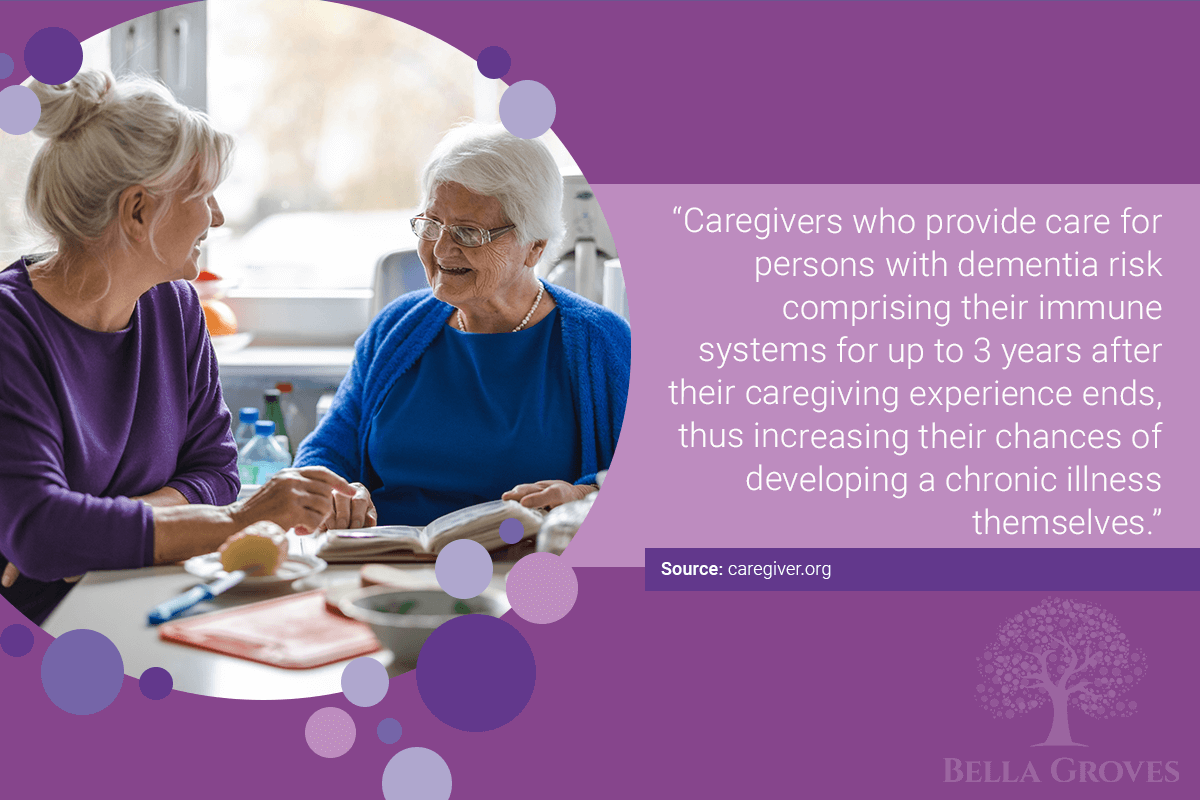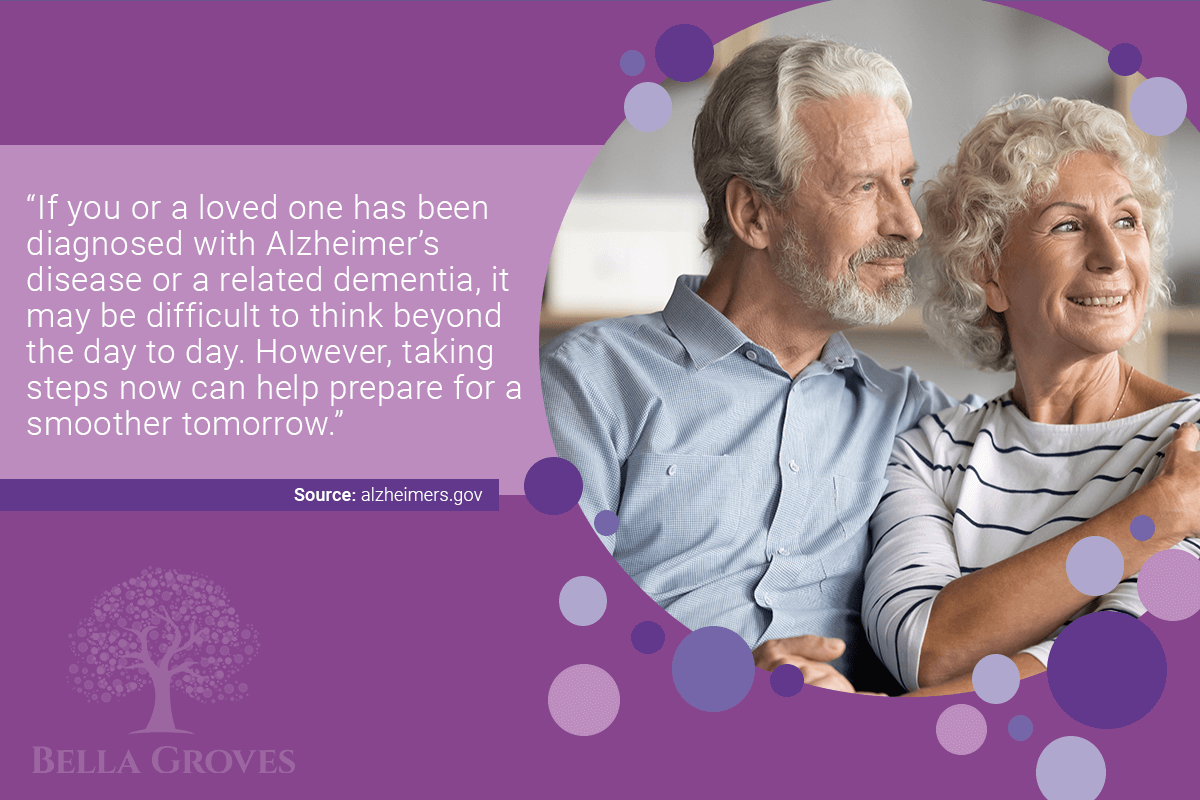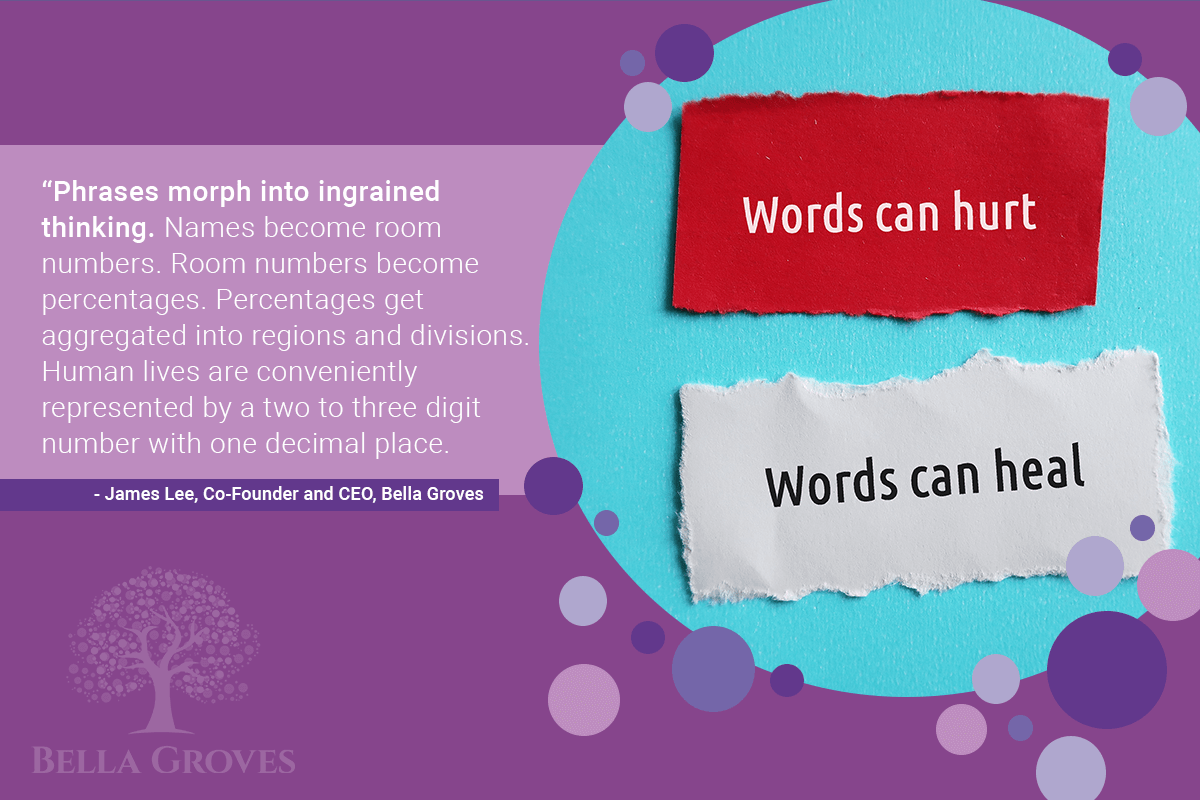
Recognizing and Preventing Dementia Caregiver Burnout
Caring for someone with dementia is an act of love and immense patience. However, the unique challenges of dementia care can place a heavy burden on even the most resilient individuals, leading to caregiver burnout. Recognizing and preventing this burnout is crucial for the caregiver’s well-being and the quality of care provided to their loved one.
Bella Groves is deeply dedicated to providing education for caregivers. We understand the challenges and struggles that you face daily, and we are committed to making your lives easier by offering valuable resources and support. Whether it’s through informative blog posts, online workshops, or one-on-one consultations, our goal is to ensure that caregivers have access to the most up-to-date information.
Our unwavering dedication has made us a trusted source in the caregiving community, and we hope our efforts make a positive impact on your life.
Understanding Caregiver Burnout
Caregiver burnout is a state of physical, emotional, and mental exhaustion. It may be accompanied by a change in attitude, from positive and caring to negative and unconcerned. Dementia caregivers face unique challenges, such as managing unpredictable behaviors and the heartbreak of witnessing a loved one’s decline, which can significantly contribute to stress and burnout.
Recognizing the Signs of Burnout
Recognizing the signs of burnout is the first step toward addressing it. These signs can be physical, emotional, and behavioral. A caregiver might find themselves feeling indifferent towards the person they are caring for or feeling like caregiving is taking over their life.
Physical Symptoms
When a person is on the precipice of a breaking point during times of immense stress, it takes a toll on the body as well as the mind. You might begin to experience chronic fatigue, in which you consistently feel exhausted. Caregiver burnout can also manifest itself through headaches, chest pain, weight fluctuations, and stomach issues, like cramps, heartburn, and digestive problems.
Emotional Symptoms
Caring for someone you love can be incredibly rewarding, but it can also affect your emotions in a variety of ways. Think about how difficult it is watching your loved one go through the progression of dementia. This can cause depression and mood swings, as well as a lack of concentration and feeling like you’re out of control, as you balance coping with your loved one’s condition and your caregiving responsibilities.
Behavioral Symptoms
If your caregiving schedule is demanding, it can be hard to find the time to enjoy your personal life. It can even cause feelings of guilt when you do take time for self-care. The behavioral signs of caregiver burnout can cause you to stop participating in activities or social groups and become easily frustrated or irritable.
Preventing Caregiver Burnout
Preventing burnout requires proactive self-care and the development of a support network. Here are some strategies to implement into your caregiving routine.
Prioritize Personal Time
Taking care of yourself is crucial when you’re a caregiver for someone with dementia. This means prioritizing self-care by making regular exercise, a balanced diet, and sufficient sleep a part of your routine. Don’t forget to dedicate some time to activities that you enjoy as well.
Communication is Key
It’s also important to communicate effectively with your family members. Discuss your needs and limits with them and be open about your feelings. This can help in setting realistic expectations and avoiding misunderstandings.
Knowing Your Limits
Learning to say no to draining or unrealistic requests is another important step in maintaining your well-being. Setting clear boundaries is crucial for ensuring that you have the energy and emotional resources to care for your loved one.
Finding Your Support Network
Joining support groups for dementia caregivers can also be beneficial. Sharing your experiences and hearing from others can provide comfort, guidance, and practical advice.
Finally, don’t hesitate to seek counseling or therapy to better manage your emotions and stress. Professional help can be an important part of your self-care routine and can help you stay strong and healthy as you care for your loved one.
The Importance of Seeking Help
There’s no shame in seeking help. Utilizing resources such as local caregiver support services, online forums, and respite care can provide relief and a fresh perspective. Remember, taking care of your own health and well-being enables you to be there for your loved one in the best way possible.
Caregiver burnout is a significant risk that can affect anyone caring for a person with dementia. By recognizing the signs early and taking actionable steps to manage stress and seek support, caregivers can protect their health and continue to provide compassionate care. Remember, caring for yourself is not an act of selfishness—it’s an essential part of the caregiving process.
If you’re feeling the weight of caregiver burnout, reach out for support. Dementia will progress; we’re here to progress with you. If you have questions about your dementia care journey, we invite you to call us at (830) 323-0440 or email us at hello@bellagroves.com.


